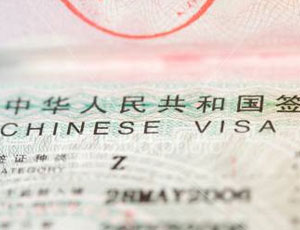Obtaining a Multi-Year Employment Permit in China
 By Stephen O’Regan
By Stephen O’Regan
Associate
Dezan Shira & Associates
Guangzhou Office
Visas and the accompanying work permits are a common cause of confusion among expats in China. Regional differences and frequently-changing rules are often the root of the issue.
Recently, several cities have changed their policy relating to Employment Permits, now granting permits with a validity of more than one year.
While under Chinese law, the maximum validity of an Employment Permit is five years, in practice five year permits are rarely granted. Applicants who meet the local requirements are more likely to receive Employment Permits for two or three years.
Beijing
The Beijing Labor Bureau now grants Employment Permits valid for up to three years to any employee working in a foreign-invested company. This is irrespective of whether the company is a joint venture or a wholly foreign-owned enterprise (WFOE.) When filling in the application form for the Employment Permit, the applicant can select their desired length of validity for the permit. If the length of the employment contract, the validity of the applicant’s passport and the employer’s business license all cover the desired period, a two or three-year Employment Permit is generally granted. Beijing offers multi-year Employment Permits for both renewals and first-time applicants.
Along with the application form, the applicants must submit copies of their company’s business license, labor contract and their passport.
![]() RELATED: New Visa and Residence Permit Regulations for Foreigners
RELATED: New Visa and Residence Permit Regulations for Foreigners
Shanghai, Guangzhou and Shenzhen
Multi-year Employment Permits are granted far less often in the other first-tier cities. As in Beijing, the applicant’s passport, employment contract and business license must all have the required length to qualify. Additionally, companies need to have a registered capital of over US$ 3 million to be eligible for longer Employment Permits. The only personnel in the company that can obtain these permits are direct investors, the legal representative, an executive with at least the rank of Department or General Manager, or a foreign expert.
First time applications are not considered eligible, only renewals.
Foshan, Zhongshan and Dongguan
Lower-tier cities in South China occasionally grant Employment Permits for multiple years as well. Foshan provides them for the General Manager, Director and legal representative positions. Companies that pay over RMB 10 million in tax may also apply for longer Employment Permits for their employees. The policy extends to first-time applicants as well as renewals.
Zhongshan only grants two-year permits to the company’s legal representative.
Dongguan does not publicly state the requirements for multiple year Employment Permits, but in practice, the legal representative and General Manager of a company with over US$ 1 million in registered capital can apply for these. In addition, the applicant must be from a ‘developed country’, but this term is not specifically defined.
Residence Permits
While certain cities are now relaxing their requirements for Employment Permits, it is important to remember that foreign employees need to have a Residence Permit as well in order to stay on in China. These are granted by the Public Security Bureau, which as of yet has not introduced multi-year residence permits. Therefore, even with a two or three-year Employment Permit, foreigners would still be required to renew their Residence Permit every year.
|
Asia Briefing Ltd. is a subsidiary of Dezan Shira & Associates. Dezan Shira is a specialist foreign direct investment practice, providing corporate establishment, business advisory, tax advisory and compliance, accounting, payroll, due diligence and financial review services to multinationals investing in China, Hong Kong, India, Vietnam, Singapore and the rest of ASEAN. For further information, please email china@dezshira.com or visit www.dezshira.com. Stay up to date with the latest business and investment trends in Asia by subscribing to our complimentary update service featuring news, commentary and regulatory insight. |
![]()
 Employing Foreign Nationals in China
Employing Foreign Nationals in China
In this issue of China Briefing, we have set out to produce a guide to employing foreign nationals in China, from the initial step of applying for work visas, to more advanced subjects such as determining IIT liability and optimizing employee income packages for tax efficiency. Lastly, recognizing that few foreigners immigrate to China on a permanent basis, we provide an overview of methods for remitting RMB abroad.
 Adapting Your China WFOE to Service China’s Consumers
Adapting Your China WFOE to Service China’s Consumers
In this issue of China Briefing Magazine, we look at the challenges posed to manufacturers amidst China’s rising labor costs and stricter environmental regulations. Manufacturing WFOEs in China should adapt by expanding their business scope to include distribution and determine suitable supply chain solutions. In this regard, we will take a look at the opportunities in China’s domestic consumer market and forecast the sectors that are set to boom in the coming years.
 China Retail Industry Report 2014 In this special edition of China Briefing, we provide an overview of the retail industry in China and the procedures for setting up a retail shop, focusing specifically on brick-and-mortar physical retail stores. Further, we have invited our partner Direct HR to offer some insights on the talent landscape in the retail industry, as well as tips for recruiting retail personnel in China.
China Retail Industry Report 2014 In this special edition of China Briefing, we provide an overview of the retail industry in China and the procedures for setting up a retail shop, focusing specifically on brick-and-mortar physical retail stores. Further, we have invited our partner Direct HR to offer some insights on the talent landscape in the retail industry, as well as tips for recruiting retail personnel in China.
- Previous Article Managing Chops and Key Personnel at Your China Business
- Next Article Special Feature: Remitting Your RMB Abroad



























